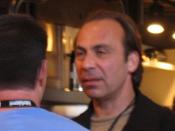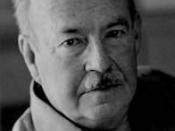Anthony Harte
Family In Focus
In today's modern western society most people are born into and brought up by a 'family'. It seems normal, familiar and a natural part of life's progression that most of these people will on to get married and have children of their own. This is reinforced by mass media, through the press i.e. 'Posh and Becks', advertisements i.e. cars and holidays and soaps i.e. Eastenders and The Simpsons. All of which revolve around the family in general.
However there are many varieties of families, ranging from global cultural differences, to certain groups contained by our own society. Families in Britain have undergone major changes historically, and will progressively continue to do so, with the onset of divorce, gay families and even down to the traditional diversions of family roles.
This essay will concentrate on the extent of such changes and their consequences for families in Britain, and look at whether the family is still relevant in society today.
To fully understand the key changes taking place in the family, we need to look historically at the roles, and the importance of the family in our society, starting with the work of functionalists.
One of the major paradigms in sociology that looks at the role of the family is functionalism. The foundations of functionalist analysis are based around consensus. They work on the belief that families function in a way similar to the human body, with all systems within it working together to maintain the health of society. One Functionalist, George Peter Murdoch (1949) compared 250 different societies to conclude his theory of the family, this was:
'The family is a social group characterised by common residence, economic co-operation and reproduction. It includes adults of both sexes, at least two of whom maintain a socially approved...


